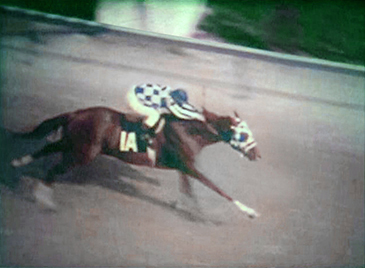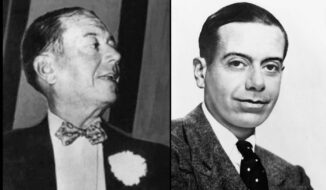Happy 63rd Birthday to Michael J. Fox, the Canadian actor who became famous for his appearances in Back to the Future, and for his advocacy on behalf of the victims of Parkinson’s disease. He founded the Michael J. Fox Foundation in 2000 to help fund research into a possible cure for Parkinson’s. READ more about Fox’s career and work… (1961)

In an interview with Jimmy Fallon in April 2014, Fox stated he was given the role of Alex Keaton on NBC’s Family Ties on a pay phone at a fried chicken joint in Canada. He received the role only after Matthew Broderick was unavailable. The positive reaction to Fox’s performance led to his character becoming the focus of the show following the fourth episode. At its peak, the audience for Family Ties drew one-third of America’s households every week, winning Fox three Emmy Awards in 1986, 1987, and 1988.
In 2012 it became apparent that Fox is one of at least four members of the cast and crew of the Canadian sitcom Leo and Me who developed early-onset Parkinson’s. According to Fox, this is not enough people to be defined as a ‘cluster’ so it has not been well researched.
Since 2010, he has led a $100-million effort, which is the Foundation’s landmark observational study, to discover the biological markers of Parkinson’s disease with the Parkinson’s Progression Markers Initiative (PPMI).
MORE Good News on this Day:
- The first rocket-powered aircraft design was patented by Robert Goddard (1931)
- Donald Duck made his debut in the cartoon The Wise Little Hen (1934)
- The Church of Jesus Christ of Latter-day Saints opened the priesthood to “all worthy men” ending 148 years of exclusion for black men (1978)
- The first live broadcast of Britain’s Parliament – the House of Commons – was televised by BBC Radio and commercial stations (1975)
- The Federal Republic of Yugoslavia and NATO signed a peace treaty in the end of the Kosovo War (1999)
51 years ago today, Secretariat and his rider Ron Turcotte won the Triple Crown, the first in 25 years after finishing first at the Belmont Stakes. Only four horses ran against Secretariat including the horse Sham, whom Secretariat had overtaken late on to win the Kentucky Derby and three other horses thought to have little chance by the bettors.

His time for the mile was 1:34 and one-fifth, over a second faster than the next fastest Belmont mile fraction in history, set by his sire Bold Ruler, who had eventually tired and finished third. Secretariat, however, did not falter.
Turcotte said, “This horse really paced himself. He is smart: I think he knew he was going 1+1⁄2 miles, I never pushed him.” In the stretch, Secretariat opened a lead of almost 1⁄16 of a mile on the rest of the field. At the finish, he won by 31 lengths, breaking the margin-of-victory record set by Triple Crown winner Count Fleet in 1943 of 25 lengths. (1973)
Happy 46th birthday to Germany’s all-time top goalscorer, Miroslav Klose. For a player who was not especially prolific at club level, when Klose pulled on the white shirt of Die Mannschaft he was nearly unstoppable. Winning 137 caps for his country, he scored a total of 71 goals, beating Gerd Müller’s total of 68. He is also recognized as the record FIFA World Cup goalscorer, netting 16 times across four editions of the tournament.

He averaged better than a goal a game for Germany during his career, many of which were celebrated with a mid-air somersault, something of a trademark for the big striker, who became known as “Salto-Klose” with Salto meaning somersault.
Klose was a typical “number-9” center-forward from the late 90s early 20s, possessing of height, strength, and directness. Almost all of his goals for Germany came from inside the box, as he was a potent and clutch finisher in tight confines with the ball at his feet. He was also deadly in the air, and he holds the record for the most headed goals in a World Cup (5).
Throughout his career he was known for fair play and sportsmanship. During a match for his club Werder Bremen, he refused to take a penalty kick against the other team because he felt the referee got the decision completely wrong. In another instance, in the Champion’s League against Napoli, he scored a goal during which the ball came off his hand, a fact he reported to the referee, who chose not to follow protocol and issue a yellow card, but rather shake Klose’s hand. (1978)
133 years ago today, composer and songwriter Cole Porter was born to a wealthy family in Peru, Indiana.
Although classically trained, he was attracted to musical theater, writing both music and lyrics for his songs, including for the Tony Award-winning show Kiss Me, Kate (Brush Up Your Shakespeare). He wrote more than 1,500 songs, including the popular standards Let’s Do It, I Get a Kick Out of You, I’ve Got You Under My Skin, You Do Something To Me, Night and Day, and In the Still of the Night.
By the time he was 33, he nearly gave up songwriting as a career due to its lack of success with the public—although Porter’s short ballet that year, entitled Within the Quota, was one of the earliest symphonic jazz-based compositions, predating George Gershwin’s Rhapsody in Blue by four months, and was hailed by French and American critics. Then, 3 years later, he left a lavish lifestyle in Paris where he and a socialite got married (his homosexuality was still taboo). They moved to New York and finally won praise on Broadway.
Every year on the second weekend of June, his little hometown of Peru (80 miles north of Indianapolis) celebrates the brilliance of their most famous son, during the Cole Porter Festival, where Anything Goes amidst fine food, wine, and music. WATCH a bio and see his hits… (1891)
And, on this day in 1891, the French painter Paul Gauguin arrived in Tahiti, a move that would transform his art and deliver the world a lush, sensual view of Polynesian island life.

He installed himself in a native-style bamboo hut in Mataiea, with Ia Orana Maria (Ave Maria, pictured) to become his most prized Tahitian painting. He executed some twenty paintings and a dozen woodcarvings over the next year and returned to France 3 years later with many more. Gauguin later wrote a travelogue (first published 1901) titled Noa Noa, commenting on his paintings and describing his experiences in Tahiti.
On this day 109 years ago, the musician and innovator Les Paul was born in Waukesha, Wisconsin. A natural engineer and phenomenal musician, Lester Polsfuss, as a teen, invented his own speaker and one of the earliest solid body guitars–carving it out of a piece of railroad plank.
 His Les Paul guitars, made famous by Gibson, were favorites of rock legends worldwide. He is the father of multi-track recording and guitar effects—experiments funded by Bing Crosby. His lightning-fast picking in jazz, blues, and country styles earned Les Paul a television show and accolades too numerous to mention. In his 90s, he still performed weekly in Manhattan jazz clubs, despite numerous disabilities. He died in 2009, three years after earning his last two Grammy awards. (1915)
His Les Paul guitars, made famous by Gibson, were favorites of rock legends worldwide. He is the father of multi-track recording and guitar effects—experiments funded by Bing Crosby. His lightning-fast picking in jazz, blues, and country styles earned Les Paul a television show and accolades too numerous to mention. In his 90s, he still performed weekly in Manhattan jazz clubs, despite numerous disabilities. He died in 2009, three years after earning his last two Grammy awards. (1915)
And, on this day in 1909, Alice Ramsey, a 22-year-old mom from Hackensack, New Jersey, began a journey that led to her becoming the first woman to drive across the United States.

On her 59-day trek from New York to San Francisco she was accompanied by two older sisters-in-law and 19 year-old friend—none of whom could drive a car. They arrived amid great fanfare on August 7, completing the 3,800-mile trip three weeks sooner than expected.
SHARE the Milestones, Memories, and Music Today…





















[…] Good News in History, June 9 […]
[…] post Good News in History, June 9 appeared first on Good News […]
[…] post Good News in History, June 9 appeared first on Good News […]